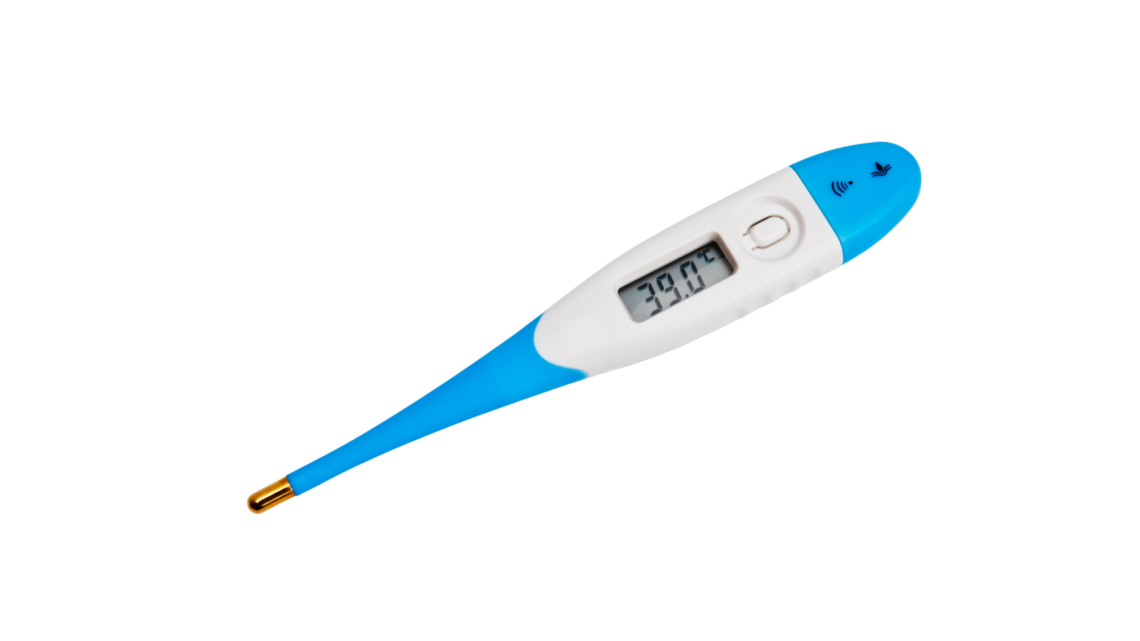
Body Temperature
On average, the normal body temperature is typically around 37°C (98.6°F). However, this can slightly differ from person to person. The average body temperature can also vary depending on age. For example, the average body temperature in babies and children typically ranges from 36.6°C to 37.2°C. As you get older, the body’s ability to regulate temperature will change and you may have difficulty conserving heat, therefore your body temperature is likely to be lower. If you are over the age of 65, the average body temperature is usually below 36.2°C.
Body temperature works through the widening or narrowing of blood vessels. When you’re too cold, your blood vessels narrow and reduce blood flow to the skin in order to conserve body heat. You will then start to shiver, and this is what helps to create more heat for the body. On the other hand, when you’re too hot, your blood vessels will widen and carry excess heat to the skin’s surface. You will then start to sweat, and this is what helps your body to cool down.
There are four different ways in which your body temperature can be measured:
• Axillary method (under the armpit)
• Oral method (in the mouth)
• Tympanic method (in the ear)
• Rectal method (in the rectum)
Aside from age, there are also other contributing factors that can influence body temperature:
• Time of day: Body temperature will usually be lower in the mornings and higher in the afternoons and evenings.
• Physical activity: If you go for a walk or run, or workout at the gym, your body temperature will rise. The less physically active you are, the lower your body temperature will be.
• Weight: Your body temperature can also differ depending on how much you weigh. If you are overweight or obese, this means you have a higher percentage of body fat, so you are likely to have a higher body temperature than someone who weighs a normal or average weight.
• Diet: If the foods you eat are all extremely low in fat, this can also cause you to have a cooler body temperature. While low-fat diets are certainly healthy, it’s recommended that you try and include some healthy fats in your diet (such as fatty fish, nuts, avocado and olive oil.)
• Environment: The climate you live in can also have an impact on your body temperature. For example, if you live in dry, hotter regions that has more warm months than it does cool, you’re more likely to have a higher body temperature; whereas if you live in cooler regions where the weather is always cold, rainy, or snowy, your body temperature is likely to be lower. To prevent yourself from overheating or getting too cold, it’s important that you dress appropriate for the weather, as well as avoid spending too much time outdoors in adverse weather.
• Illness: Perhaps the most common reason one develops a high body temperature is due to illness. For example, if you have the flu or a common cold, it’s not uncommon to develop a fever. You can also develop a fever/high body temperature as a result of having a bacterial infection, such as pneumonia.
If you have a dangerously high body temperature, the first thing you should do is see your family physician or go to the nearest walk-in clinic as soon as possible. If your high body temperature is accompanied by something like the flu, or if you have a bad cough, the culprit could very well be the result of an infection, as mentioned. If an infection such as pneumonia happens to be the cause, you will need to treat that infection with a course of antibiotics. Because fever often comes along with these types of illnesses, you can also reduce your body temperature with over-the-counter pain relievers like acetaminophen and ibuprofen. When you have a higher body temperature, you’re also more likely to become dehydrated, so you can also cool the body down by drinking water. I recommend drinking at least 8 to 9 glasses a day. Along with getting your body temp back down to where it needs to be, drinking water can also provide you with many other health benefits. Nutrient-rich fruits and vegetables such as melons, oranges, grapes, cucumber and lemon can also help to balance both internal and external body heat.

